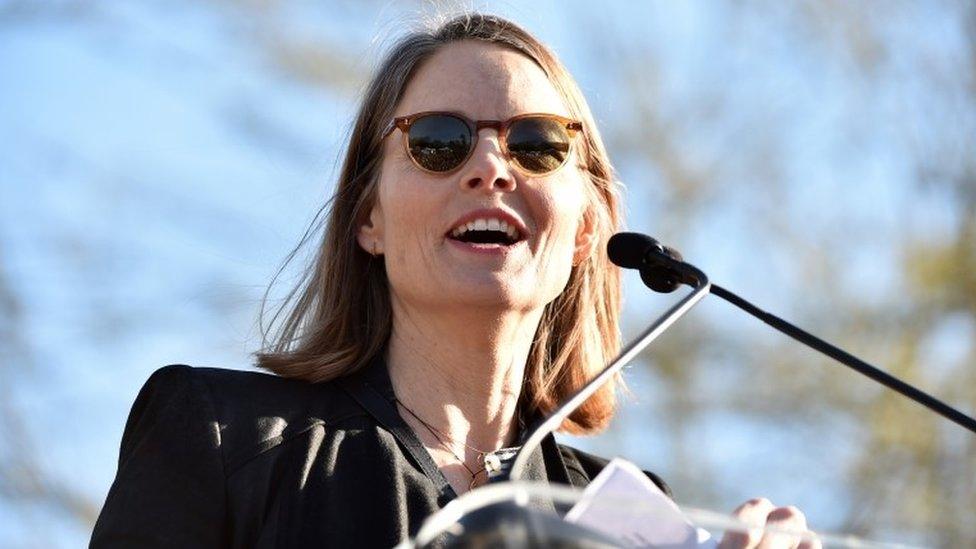Oscars 2017: And the Academy Award goes to... diversity
- Published
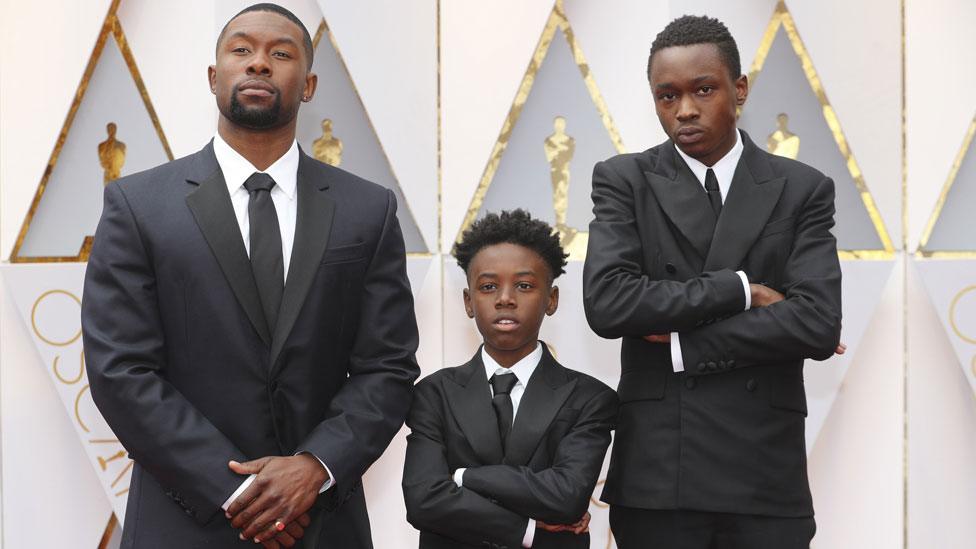
Trevante Rhodes, Alex R Hibbert and Ashton Sanders share the lead role in Moonlight
You might have missed it amid all the hubbub, but a film about a gay black man just won the best picture Oscar.
Not only that, but one of Moonlight's stars - Mahershala Ali - became the first Muslim actor to win an Academy Award.
And best supporting actress Viola Davis, star of Fences, made history as the first black woman to win an Oscar, an Emmy and a Tony for acting.
Diversity. It's a word that gets bandied around so much, and so often, it runs the risk of becoming meaningless.
It's worth remembering, though, that only 12 months ago the #OscarsSoWhite controversy was all Hollywood was talking about.
Two years of all-white line-ups in the four acting categories stung the Academy into taking concerted measures to broaden its membership's make-up.
Viewed in that light, this year's list of award winners makes for much more encouraging reading.
Yet it wasn't just the winners who reflected the "identity rainbow" Jodie Foster spoke about at a pre-Oscars rally.
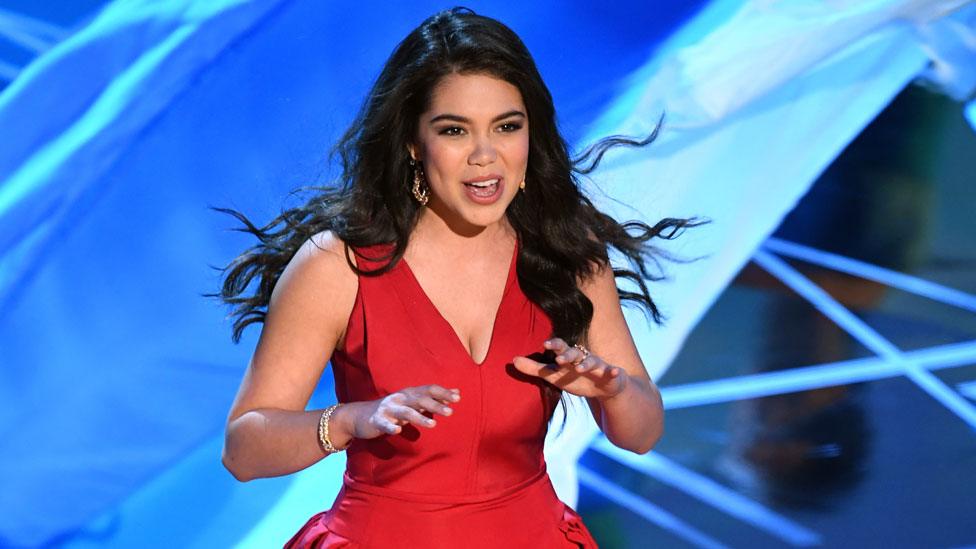
Auli'i Cravalho performed How Far I'll Go, from Disney animation Moana
From Loving's Ruth Negga to Moonlight's Naomie Harris to Lion's Dev Patel, the losers were a pretty diverse bunch too.
Auli'i Cravalho, an actress of Chinese, Irish, Native Hawaiian, Portuguese and Puerto Rican descent, sang a song on stage.
And Lion's Sunny Pawar, an eight-year-old boy who was born and raised in a Mumbai slum, got lifted aloft by Jimmy Kimmel, the ceremony's host.
Millions around the world were watching last night. President Trump, however, is not thought to be among them.
Yet that didn't spare him a ribbing from Kimmel, or from being taken to task both obliquely and directly.
Asghar Farhadi, the Iranian director of best foreign film The Salesman, stayed away in protest at the Trump administration's travel ban on immigrants.
In his absence, a speech was read out that castigated the "inhumane" legislation for disrespecting his homeland and the six other countries it targeted.
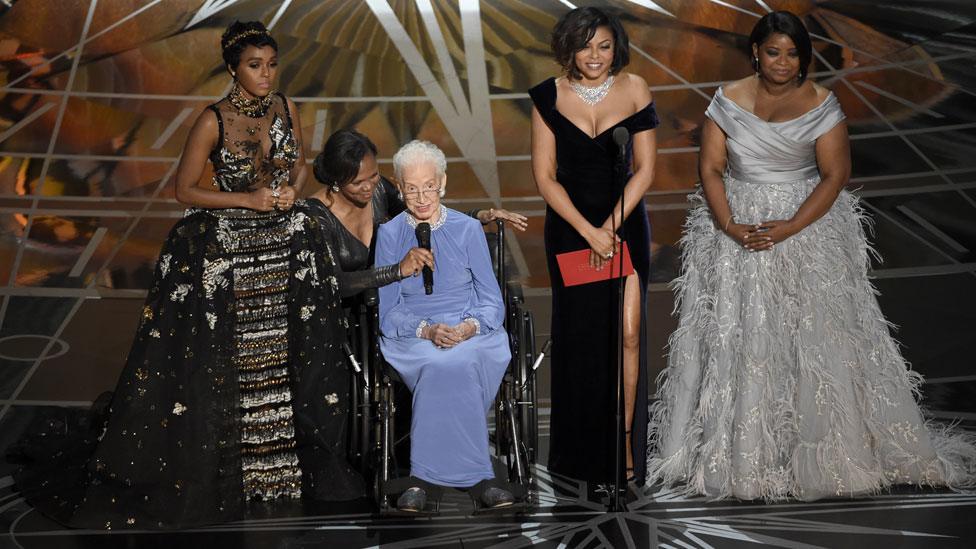
Katherine Johnson (seated) appeared with Janelle Monae, Taraji P Henson and Octavia Spencer
There were many moments to cherish at this year's Oscars - some humorous, some moving and some downright calamitous.
Yet perhaps the most telling came when the stars of Hidden Figures arrived to announce the winner for best documentary feature.
With them came Katherine Johnson, the 98-year-old African-American woman who was one of the real-life inspirations behind the space race drama.
Could a woman born in 1918, who has lived through Jim Crow, segregation and the fight for civil rights, have ever dreamed of a day when her presence at the Oscars would generate a spontaneous standing ovation?
La La Land may have won the most awards at this year's ceremony, but diversity was surely the biggest winner of all on Hollywood's glitziest night.

Follow us on Facebook, external, on Twitter @BBCNewsEnts, external, or on Instagram at bbcnewsents, external. If you have a story suggestion email entertainment.news@bbc.co.uk, external.
- Published27 February 2017
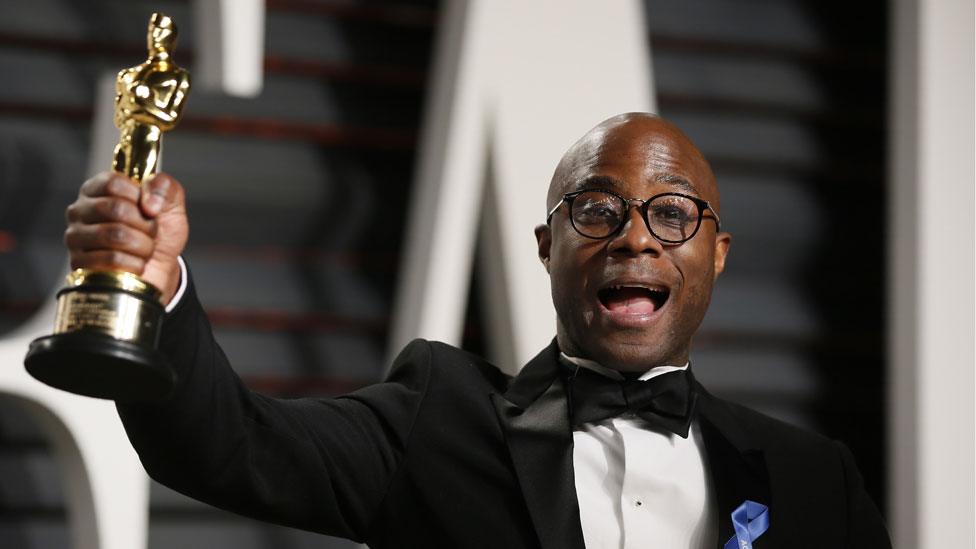
- Published27 February 2017
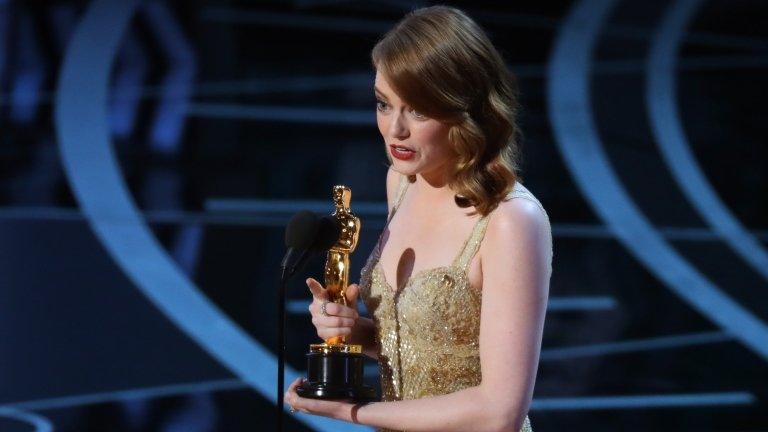
- Published25 February 2017
